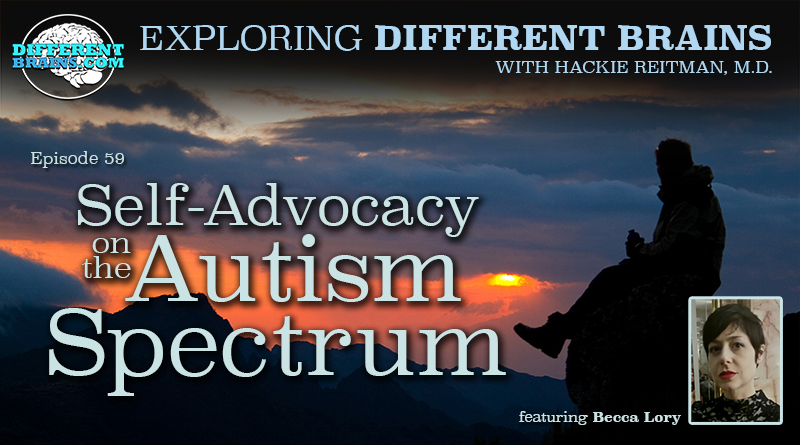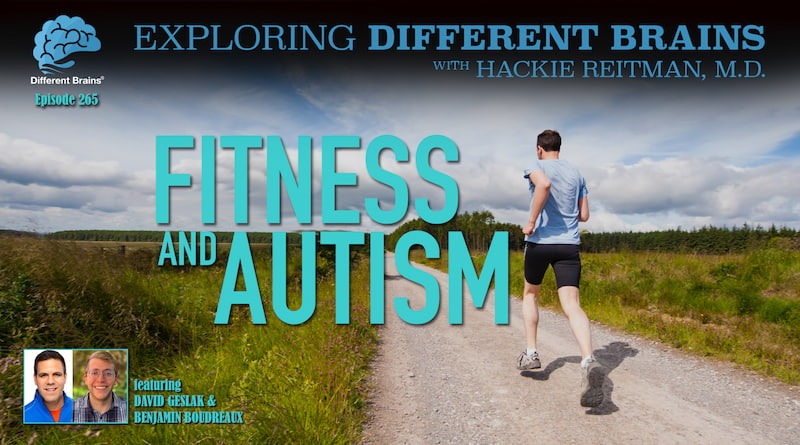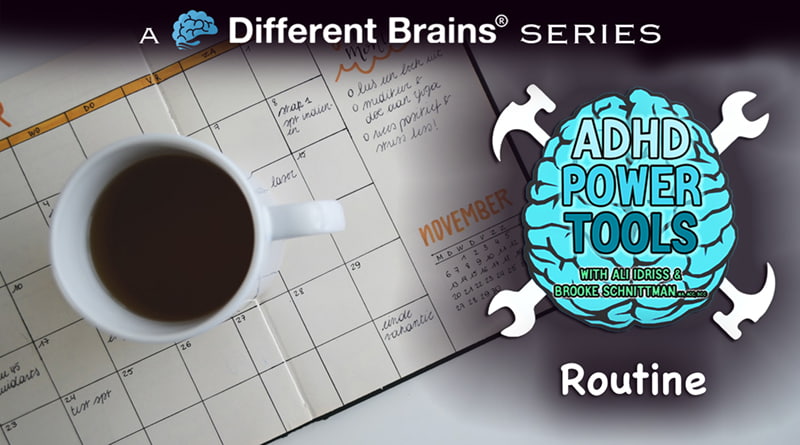Atlas Primer: Making Education Accessible, with Hinrik Jósafat Atlason | EDB 305

Atlas Primer CEO and founder Hinrik Jósafat Atlason shares how the learning assistant app can make education more accessible for neurodivergent learners.
Atlas primer is a learning assistant app that creates a “personal learning environment” for it’s users. Atlas Primer was founded on the vision of creating a learning environment that combined the accessibility and convenience of audiobooks and podcasts, with the interactivity and flexibility offered by voice assistants and smart devices. The primary goal of Atlas Primer is to increase the availability of quality education through the use of technology, by increasing access, usability and automation. Their approach allows the creation of interactive learning environments with even the simplest of devices and in the most remote locations.
Hinrik is also an entrepreneur and educator, residing in Iceland. He was previously Head Teacher in a private Executive Education Academy and Lecturer at Reykjavik University.
For more about Atlas Primer: https://www.atlasprimer.com/
AUDIO PODCAST VERSION:
Or look for us on your favorite podcast provider:
iTunes | Stitcher | SoundCloud
FULL TRANSCRIPTION
Note: the following transcription was automatically generated. Some imperfections may exist.
DR HACKIE REITMAN (HR):
Hi, I’m Dr. Hackie Reitman. Welcome to another episode of Exploring Different Brains. And today, we’re taking you all the way up to Iceland. Yes, that’s right, Iceland. We’re going to talk to the founder, and CEO of Atlas Primer, Hinrik Atlason, and he is going to tell us all about this revolutionary thing he’s got going on. Henrik, welcome.
HINRIK JÓSAFAT ATLASON (HA):
Thank you, Hackie. It’s a pleasure to be here.
HR:
Thank you very much. I tell you what, you’re really on the cutting edge of things up here. Why don’t you introduce yourself properly to our audience?
HA:
Yeah, absolutely. My name is Hinrik, as you said, the founder of Atlas Primer. We are an educational app that specializes in creating flexibility in the educational system for students who are neurodivergent. We do that through among others AI, but also just through rigorous product testing and close communication with with our users to find the things that work best for them, and make sure that we’re really delivering value.
HR:
So you’re trying to level the playing field for those of us whose brains are different, whatever our labels might be dyslexia, autism, you name it?
HA:
Yeah, that’s that’s an accurate way of putting it, you can say that. We fundamentally believe that the disadvantage, people who are neurodivergent have in the educational system is not because they are neurodivergent. But it’s the lack of flexibility in the educational system. So by by celebrating our diversities and differences, and looking at neuro diversity, more as just the diversity, that it is that we all think differently, we process information differently, we can create more flexibility that allows more people to reach their full potential.
HR:
And it would seem so logical to do so. You know, every brain is different. And if I have a blind student, why am I going to write on the blackboard, it’s not going to do many good. What do you see is the main roadblock to schools creating inclusive learning environments?
HA:
I would say that, first of all, I think that, you know, the vast majority of people involved, they genuinely want to be helpful. I think they just don’t really know how to be helpful. And I believe that there is a certain survivor bias in the educational system, which means that if people go through the educational system, which today is just based on reading, writing, sitting still all day and being tested, you know, to an obscene amount, then you might consider if you go through that system with relative ease, you might consider a career in that system. But if you go through that system, and you’re bumping your head into every obstacle along the way, you just want to get out and never looked back. So that kind of enforces the belief that there is this one normal way of learning, and that everyone that doesn’t, you know, fit into that small box, they’re different, or they have a learning disability. And that is, that is what I think is the biggest roadblock, not knowing how to how to how to how to help how to fix this.
HR:
Now you’re a worldly man, you travel all around the world. You’ve been working in the neuro diverse space, and and traveled around. How would you say neurodiversity acceptance and inclusion is doing around the world?
HA:
I would say that it’s getting better, for sure. But we’re not quite there yet. I kind of see neurodiversity at the state of neurodiversity. Today. You reminds me and this is not a scientific fact, it’s just my impression, reminds me a little bit of how we’ve dealt with things that we you know, that we didn’t understand. You know, before, for example, we didn’t understand that the diversity of sexual orientation. So we tried to cure it, you know, where women weren’t allowed to vote for for a long time. But, you know, there are these things where we, we don’t understand what we’re dealing with. And we label it with some kind of deficiency and we try to fix it, instead of looking at it as the diversity that it is and that it can actually be beneficial to ourselves. Say it is if we can harness it correctly. I want to, I think one of the things that made the most impact on me in the recent years is, is a study made by the Boston Consulting Group on the economic impact of dyslexia on the state of California. They found that out of you know, that about 49%, of the state’s homeless had dyslexia. And that is the staggering given that the general prevalence is about temperature in the in the general population among the incarcerated, about 48%, had dyslexia. And it’s not, I believe, because they are, you know, that, you know, that they are, you know, more disposed to end up in these unfortunate situations, but we just, we’re not supporting them, we’re not giving them what they need to, to live a full life to reach their full potential to do what they what they want to do.
HR:
Now, suppose I’m a school administrator, I’m watching this video, and I’m wondering, how do I rethink my approach to addressing learning differences? What would you tell me? What would you tell them, the school administrators?
HA:
I would tell, I would say add flexibility. Because I don’t believe that there is — I don’t believe that this is a hard problem to solve, once we really appreciate what it is that actually has to be solved. And how we solve it, I would say just add flexibility, add audio, so let more people can listen. Add more flexibility in, you know, in the in the learning environment, so more people can move around. Some people just think better and process information better when they’re working around. Add more conversations, so that people can explore topics on their own premise so that people can piece information together in a way that works for them.
HR:
That’s a segue into Atlas Primer, tell us about tell us about how that can help.
HA:
Well, it implements what we call these three pillars of flexibility. And I touched upon them, one of them is audio. A lot of people struggle with reading comprehension. It’s not a learning disability, it’s, it’s a reading problem. So that can be fixed just by, you know, increasing the way of audio everywhere around us, allowing people to consume text and audio. That’s not, that’s not hard. Really. The second part is there’s mobility. A lot of people have a hard time concentrating while sitting still. So they need to be able to take the learning environment with them into everyday activities, and learn wherever they find themselves. The third part is just having it conversational. And this is something that just recently became a real option, given all the advances in AI, because then that allows people to, to take complicated subjects, break them down and explore them in a way that works for them to piece this information together and just ask questions, when there’s something that they don’t understand. And having all these things together, creates the flexibility that that helps more people reach their goals. And that’s just what we’re doing at Atlas Primer.
HR:
How did you get into it?
HA:
Well, I’ve been I’ve been making AI stuff for a long time. I was, I’m a I’ve been making AI applications for about 17 years. And in 2006, for example, I made a voice assistant for Windows, which was surprisingly good, actually. And I love the voice interface the voice interface has, there’s so little friction, and it allows us to, you know, interact with, with computers all around us, you know, no matter what we’re doing, almost. And then you know why I was creating learning material off my own. My career in AI led me to, to to be approached by a local university. They asked me if I want to bring some of my experience into the classroom. And I thought that was a great way to give back and for me to understand better what the next generation is thinking and what’s what’s important to them. And I actually thought that this was very naive of me, but I actually thought that coming back to the classroom after all these years I wouldn’t be entering something that would be, you know, borderline futuristic, we had all this wonderful technology. So it must be amazing to be a student today, I thought, but when I arrived, I found the opposite. The the misalignment between the educational system and the students had actually gotten worse. And I think it’s because now we had all this wonderful technology and the flexibility and you know, on demand services and nonlinear programming all around us, except in the educational system. So that is amplified the friction. So I thought, what if we can combine the, my passion with which are voice assistants, with for example, audio, which is just very convenient, you can consume information on the go, you you become a more productive leader, although that sounds like a contradiction. And they reduce the stress and other things because you can consume more. And then I thought, how can we apply that to learning and I deployed that in one of my courses, and the students loved it. But the students who were neurodivergent, they said it was a game changer. For them, it was a complete revolution. And that’s when I started thinking more about how we can apply, you know, this, these added degrees of flexibility to a group of students that is just being terribly neglected. In the educational system that we have today. And I there’s neuro diversity in my family, but I was one of the people that actually believed that this was a learning disability and didn’t think twice about it. But then when I started diving deeper, peeling off one layer after another, is found that it’s, it’s a horrible thing to tell young and bright and promising people that they have a disability and learning when all that’s lacking is just a little bit of flexibility in their environment.
HR:
How can people learn more about you and about Atlas Primer and all of that? Where do they go? How do they find out?
HA:
Well, I think the best way, the most valuable for you no way for us is just if people visit the website, try the app and then give us feedback. There is there is a fallacy in the educational system, that assumes that everyone is the same. And one size fits all works. But you know, we’re not repeating that fallacy. But it’s hard to design for neurodiversity, because that is where we have a lot of spectrums that are sometimes overlapping. And I don’t believe any two neurodivergent people are neuro divergent in the same way. So what we do is we just add these degrees of flexibility and ability and allow people to piece them together in a way that works for them. So all kinds of product feedback is tremendously valuable for us. And these are the these are the conversations I enjoy the most with our users.
HR:
It’s kind of the fallacy of universal design. And yet, we’re trying to make an app that gives all the options no matter how your brain is different. So that you can learn. You can function.
HA:
Yeah, I think I think this comes back to the you know, it there is there is an area of the interface design called inclusive design. And it just means bringing more options to the table. You’re not You’re not going to make something that fits everyone, but at least you can bring more options: icons, audio, things that people can interact with them. And you know, they don’t have to be a specific way for this to work for them. They can be many different ways and still going to work for them because someone took the time to think about inclusivity and appreciate it that we’re all different.
HR:
You know, I’m just thinking in my mind when they passed laws for disability, the Americans with Disability Act and things like that and, and I’m thinking about the something as simple as making all doorways wide enough for wheelchairs kind of thing. What that did for everybody in a wheelchair, all across the nation. This is almost the reverse when I say reverse, it’s the wrong word. But what I mean is we’re not thinking so much about universal design as much as we’re thinking about include snips with thinking inclusiveness. So if someone has autism or someone has dyslexia, then they can be presented in such a way that their brain can take it in and they can be successful.
HA:
Yeah, and you know, I’ve studied a lot of forums on related to neuro diversity. And it seems to me that probably about 80% of the posts there are mostly from people, this looking for support, looking for someone that understands them that can that can help them tell them that they are not deficient, that it’s okay there are ways for them to, to, you know, to do what they want to do. And that is a very important element in in Atlas primary, you mentioned the doors, most people wouldn’t notice a wider door, but a person in a wheelchair would. And the same is true with on ramps, you know, instead of staircases if you can design a beautiful unwrap, nobody’s going to notice it, except the persons that you know, the people that would be severely affected if it weren’t there. And this is design principle that we take with us to Atlas primer because we do not we are not making assistive technology. Assistive Technology implies that there’s something wrong with the user that the user is deficient. And we fundamentally disagree with that. We are just making a more flexible way of learning. And that should work for neurodivergent people and neurotypical people. It’s not just about inclusiveness, but it’s also about productivity. Audio is a huge productivity enabler. And being able to consume learning material when you’re driving to and from school or cooking at home that unlocks a lot of productivity. So we are we although we are designing this with inclusivity in mind, in specifically towards neurodiversity, we are also designing this for everyone else, because the ultimate goal is that neurotypical and your divergent students can study together without anyone feeling disabled.
HR:
That’s very well said, Very well said. Is there anything we haven’t covered that you’d like to cover?
HA:
I think there is a lot of there are a lot of reasons to be optimistic. In particular, with the latest advances in AI, it allows us to do things completely differently. And I just want to encourage people not to, you know that these are new, this is a new technology, and that can be scary. And the immediate response can sometimes be to ban it and you know, outlawed. I would encourage people to instead embrace it, see how we can use that, for the benefit of people. If, if if teachers are afraid to have an AI, doing the assignments and passing the exams, maybe they need to rethink the assignments and the exams. Now and that’s, that’s coming from my perspective as a as a university instructor as well. If they if they’ve if an AI could pass my exams, then I would have to rethink my exams. Maybe they just weren’t good enough.
HR:
Well, Hinrik Atlason all the way up in Iceland. And the name of the app is the Atlas Primer. And what’s the website people can go to? Well, it’s
HA:
just the AtlasPrimer.com. We’re also in the in the Google Play Store and Apple App Store, just under Audio learning AI assistant.
HR:
That’s great. Well, we hope you’ll have time to come back again to Different Brains. And it’s been a pleasure to have you good luck with everything up there in Iceland. And with Atlas primer, and Hinrik, pleasure to have you hope you’ll come back soon. Thank you very much.
HA:
Thank you Hackie. It’s been a pleasure.




